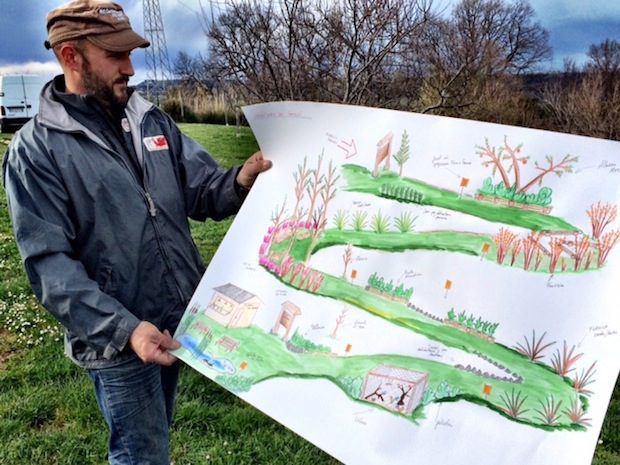Asking The Fallows Question

From David Brooks’s column today:
Their example has prompted what I call the Fallows Question, which I unfurl at dinner parties: If you could move to the place on earth where history is most importantly being made right now, where would you go?
If you had responded to the Fallows Question in 1968 you would have moved to California, both to the Bay Area and to Orange County. That would have put you at the epicenter of the ’60s counterculture, and also at the center of the Reaganite conservatism that arose in response.
By 1974, the most important place to be was the offices of the magazine Ms. For all its excesses, feminism has been the most important and the most salutary change of our lifetimes.
By the 1980s, the big historical changes had to do with capitalism and finance, so either Japan or Wall Street was the place to be. In the early 1990s, Europe was the place to witness the end of communism and the false dawn of global peace. By the ’90s, Silicon Valley was the most important driver of world historical change.
You see where he’s going with this. Brooks says that the Fallows answer today is clearly Trump’s Washington. But James and Deborah Fallows, for whom the question is named, disagree:
I sent the Fallows Question to the Fallows themselves, and they agreed in part with my Washington answer. But they also said that the most important place to be now might be places like Erie, Pa.; Fresno, Ca.; and Columbus, Ohio.
Trump’s presence in the White House may push change to the local levels. In these cities, the Fallows argue, citizen participants are coping with declining industries, creating new civic cultures, assimilating waves of immigration, collaborating across party lines to revive everything from arts programs to tech seedbeds.
If you want to “observe” history, the Fallows say, go to Washington. If you want to “participate,” go elsewhere.
How would you answer the Fallows Question? Let’s take Washington, DC, off the table for this one. I would offer the following answers:
Silicon Valley. I believe the technologies and uses for technology coming out of this place will continue to be revolutionary, in large part because they also carry with them an ideology of fragmentation, isolation, and separation from the real world. The techno-libertarianism of Silicon Valley is a powerful carrier of what philosopher Michael Hanby has called the ideology of technology. Here’s an excerpt from an essay of his to show you what I mean:
I have written a fair bit of late about the inherent totalitarianism of technological and liberal order, a notion, admittedly, that many find absurdly inconsistent with the numerous freedoms we obviously enjoy. But by “totalitarianism” I do not mean the dictatorial rule of an all-powerful state; indeed, the state is but one of its mechanisms of enforcement and perhaps not even the most important. Rather, I mean the absolutization of technological and liberal order as such, their power to define the totality within which we live and move and have our being, and thus to determine the limits of our vision, thought, and action. Elections have consequences; I do not mean to suggest otherwise. But no election can suffice to prevent this suffocating fate, as each party seems to have its own peculiar genius in helping to bring it about.
For Christians, I would say San Benedetto del Tronto, Italy, which is home to the Tipi Loschi association of lay Catholics.
You might recall my telling you that Father Cassian Folsom, at the time the prior of the Norcia monastery (he has since retired), told me on my Benedict Option quest that Christians who don’t do some version of what the Tipi Loschi are doing aren’t going to make it through the trials to come. There may well be American versions of this group — I would be surprised if there weren’t — but I didn’t have time to travel like I had hoped to when researching The Benedict Option. From what I was able to see from my visit to that community, they are living out the Benedict Option ideally. They all live in the small coastal city, not in a compound or anything, just like normal people. But they have a strong social bond, built around their shared Catholic orthodoxy. They come together often for mass, for Bible study, for common meals, for sports, for community gardening, and for service projects to the wider community. They have their own classical Christian school, and have established several small co-operatives that in part give work to young men just coming out of jail. They have a close relationship with the monks of Norcia. And, above all, they are joyful.
The Tipi Loschi are the living antithesis of Silicon Valley techno-libertarianism. What they’re doing is a terrific example to the rest of us Christians, Catholic and otherwise, for what we have to do to live out our faith in these times. In my book, you’ll meet all kinds of people, most of them Americans, who are doing some great Ben Op-style work in their communities. So far, though, the Tipi Loschi are the most advanced, though I expect to revise that judgment after I visit the Bruderhof in upstate New York next month.
So, how would you answer the Fallows Question? Where would you go today if you wanted to see Big History being made? Remember, take Washington off the table.
Subscribe for as little as $5/mo to start commenting on Rod’s blog.